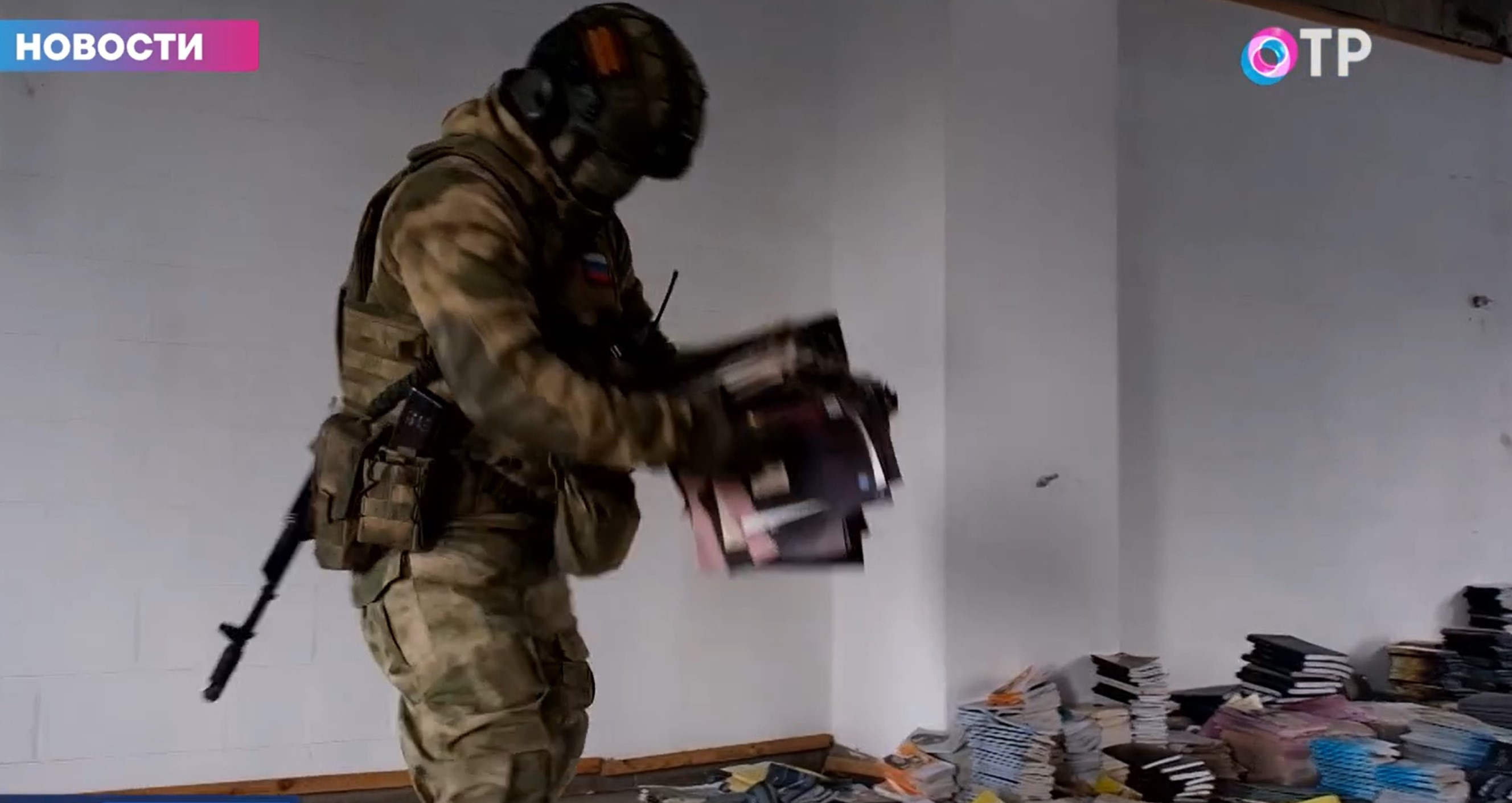Russia raids Jehovah’s Witnesses in occupied Mariupol, claiming they ‘finance Ukraine’s Armed Forces’.

It was always a matter of time before Russia began its armed raids and arrests of peaceful worshippers on any occupied Ukrainian territory, however the added charges are especially cynical
Russia’s FSB burst into the offices of the Mariupol Jehovah’s Witnesses on 15 January in a move that was to be expected given the religious persecution that Russia has brought to any illegally occupied Ukrainian territory. There was, however, one ominous nuance with the invaders claiming that they had found ‘evidence’ that the Jehovah’s Witnesses are providing money to Ukraine’s Armed Forces.
The claim about support for Ukraine’s Army is preposterous given that Jehovah’s Witnesses are willing to go to prison rather than take up arms in a military conflict. Since Russia’s full-scale invasion of Ukraine, the FSB have added claims about support for Ukraine to its standard arsenal against Crimean Tatar and other Ukrainian political prisoners. It is possible that they are doing the same here, or that they are seeking a second excuse for Russia’s first open persecution of Jehovah’s Witnesses in parts of Ukraine seized in 2022. Russia’s persecution of believers in occupied Crimea makes it clear that Ukrainians will be in danger of arrest and prison sentences for practising their faith in any area that falls under Russian occupation.
The FSB video of its raid on 15 January was widely circulated in the Russian state media and occupation propaganda websites. 20 thousand books were confiscated with it clear from the video that the works, described as ‘extremist literature’, are in fact books of religious worship (‘Sing praise to Jehovah’, the children’s book ‘Become a friend of Jehovah’ and others). The Russians also removed computer discs, founding charters and other documents.
The claim that evidence had been found that the Jehovah’s Witnesses were ‘financing the Ukrainian Armed Forces’ appears to have come from Rosgvardia. No proof was demonstrated, and it is clear from the range of enforcement bodies deployed that the allegation was planned. TASS reported that the raid was carried out by Russia’s FSB, as well as the FSB installed in the fake ‘Donetsk people’s republic’, military counterintelligence bodies and Rosgvardia. Izvestia claimed that the Russian ‘enforcement bodies’ are now seeking to identify “individuals involved in financing Ukrainian neo-Nazis”.
Russia’s harassment and persecution of Jehovah’s Witnesses had begun much earlier, but became ‘official’ on 20 April 2017 when the Russian supreme court outlawed this world faith, claiming it to be ‘an extremist organization’.
Within two months, a Crimean Jehovah’s Witness had been told to ‘prove change of faith’ or face being forced to do Russia’s military service, something that no Jehovah’s Witness would be willing to do. There were also numerous administrative prosecutions, although here the Jehovah’s Witnesses were no different from other faiths also under attack in occupied Crimea.
In August 2017. 18 Jehovah’s Witness communities were declared ‘extremist organizations’ and banned, with this making it a matter of time before the first criminal prosecution. By August 2018, the Russian proxy ‘Donetsk and Luhansk people’s republics’ had also outlawed the Jehovah’s Witnesses.
The first armed raids took place during the evening and night from 15-16 November 2018 in Dzhankoy. During these gratuitously violent raids, a 78-year-old believer was manhandled, and Serhiy Filatov, a father of four, was arrested.
Filatov was later released under a signed undertaking not to leave the city. He was, however, sentenced to six years’ imprisonment on 5 March 2020, with that sentence upheld on 26 May that year by Edward Belousov, one of many so-called ‘judges’ in occupied Crimea who are under international sanctions for such participation in kangaroo court trials. Filatov was found to have (and had never denied having) prayed together with others in his own home. The Russian-controlled ‘prosecutor’ and ‘court’ chose to view such worship as “undermining constitutional order and state security’.
Nine other Crimean Ukrainians are currently serving similar or even longer prison sentences for peacefully practising their faith, and several others are awaiting the appeal hearings against analogous sentences. The persecution is continuing.
Source: khpg.org
Author: Halya Coynash